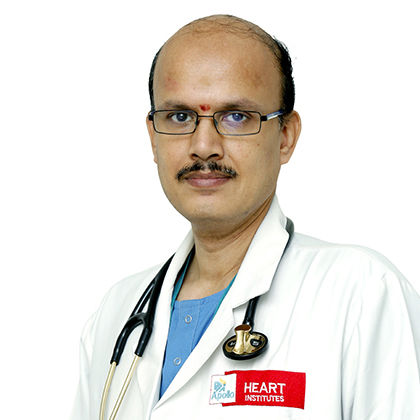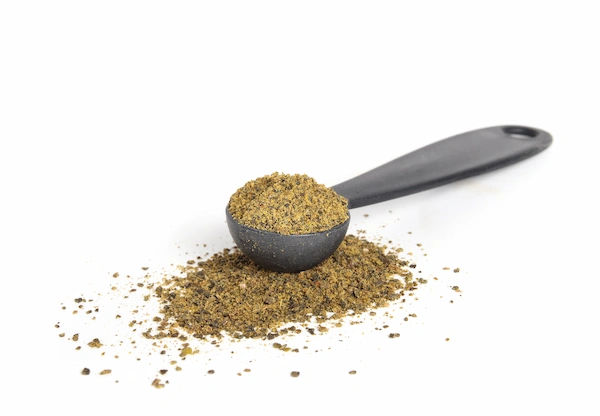Understanding Familial Hypercholesterolemia and Its Treatment
Know about Familial Hypercholesterolemia, a genetic condition causing high cholesterol levels. Understand its symptoms, causes, diagnosis, and effective treatment options to manage the condition and reduce heart disease risk.

Written by Dr. Dhankecha Mayank Dineshbhai
Reviewed by Dr. Md Yusuf Shareef MBBS
Last updated on 13th Jan, 2026

Introduction
Familial Hypercholesterolemia (FH) is a genetic condition that causes high cholesterol levels from birth, increasing the risk of heart disease at an early age. If left untreated, it can lead to serious complications like heart attacks or strokes. The good news is that with proper awareness, early diagnosis, and treatment, FH can be managed effectively.
This article will help you understand what FH is, its symptoms, causes, and how to manage it for a healthier life.
What is Familial Hypercholesterolemia (FH)?
Familial Hypercholesterolemia is an inherited disorder that affects how your body processes cholesterol. People with FH have very high levels of low-density lipoprotein (LDL) cholesterol, often called "bad cholesterol," from a young age. Unlike high cholesterol caused by poor diet or lifestyle, FH is genetic, meaning it runs in families.
Without treatment, cholesterol builds up in the arteries, leading to blockages that can cause heart disease, heart attacks, or strokes, sometimes even in young adults or children.
Consult a Top Heart Specialist for the best advice
Symptoms of Familial Hypercholesterolemia
Many people with FH don’t show obvious symptoms until serious complications arise. However, some signs to watch for include:
- Yellowish cholesterol deposits (xanthomas) on the skin, especially around the eyes, elbows, knees, or hands.
- Swollen or painful tendons due to cholesterol buildup (often in the Achilles tendon).
- Corneal arcus – a white or gray ring around the cornea of the eye (more common in older adults but can appear early in FH).
- Early heart disease – chest pain (angina), heart attacks, or strokes before age 55 in men and before 65 in women.
If you or a family member has these symptoms, it’s important to get tested early.
Causes of FH: Why Does It Happen?
FH is caused by a genetic mutation that affects the liver’s ability to remove LDL cholesterol from the blood. Normally, the liver clears excess cholesterol, but in FH, this process doesn’t work properly, leading to dangerously high levels.
There are two types of FH:
1. Heterozygous FH (HeFH) – Inherited from one parent (more common).
2. Homozygous FH (HoFH) – Inherited from both parents (rare but much more severe).
If one parent has FH, there’s a 50% chance their child will inherit it. That’s why family screening is crucial.
How FH Affects Your Health
High LDL cholesterol in FH can lead to:
- Atherosclerosis (hardening and narrowing of arteries).
- Increased risk of heart disease and stroke at a young age.
- Heart attacks even in people in their 30s or 40s.
The earlier FH is diagnosed, the better the chances of preventing complications.
Diagnosis: How is FH Detected?
FH is diagnosed through:
- Blood tests to check LDL cholesterol levels (often very high, above 190 mg/dL in adults or 160 mg/dL in children).
- Genetic testing to confirm the mutation.
- Family history of early heart disease or high cholesterol.
If you suspect FH, consult a doctor for screening. Early detection can save lives.
Get Your Health Assessed
Treatment and Management of FH
While FH is a lifelong condition, it can be managed effectively with:
1. Medications
- Statins – Lower LDL cholesterol production in the liver.
- Ezetimibe – Reduces cholesterol absorption in the gut.
- PCSK9 inhibitors – Injectable medicines that help the liver remove LDL.
- LDL apheresis – A procedure to filter cholesterol from the blood (for severe cases).
2. Lifestyle Changes
- Heart-healthy diet – Reduce saturated fats (found in fried foods, red meat, and full-fat dairy). Increase fiber (oats, fruits, vegetables).
- Regular exercise – At least 30 minutes of moderate activity (walking, swimming) most days.
- Avoid smoking – Smoking worsens cholesterol and heart risks.
- Maintain a healthy weight – Helps improve cholesterol levels.
3. Regular Check-ups
- Since FH increases heart disease risk, regular cholesterol tests and heart health monitoring are essential.
When to See a Doctor?
If you have:
- A family history of early heart disease or high cholesterol.
- High LDL cholesterol despite a healthy lifestyle.
- Visible cholesterol deposits (xanthomas) or corneal arcus.
Consult a specialist for proper diagnosis and treatment.
Conclusion
Familial Hypercholesterolemia is serious, but manageable with early intervention. If you suspect FH in yourself or a family member, get screened as soon as possible. By staying informed and taking proactive steps, you can protect your heart and live a healthier life, even with FH.
Consult a Top Heart Specialist for the best advice
Consult a Top Heart Specialist for the best advice

Dr. Zulkarnain
General Physician
2 Years • MBBS, PGDM, FFM
Bengaluru
PRESTIGE SHANTHINIKETAN - SOCIETY CLINIC, Bengaluru

Dr. Tripti Deb
Cardiologist
40 Years • MBBS, MD, DM, FACC, FESC
Hyderabad
Apollo Hospitals Jubilee Hills, Hyderabad

Dr. E Prabhakar Sastry
General Physician/ Internal Medicine Specialist
40 Years • MD(Internal Medicine)
Manikonda Jagir
Apollo Clinic, Manikonda, Manikonda Jagir
(175+ Patients)

Dr. Rakesh Gopal
Cardiologist
22 Years • “ Trained in Trans Aortic Valve Implantation ( TAVI ) from Mehmet Akif Ersoy Hospital Istanbul, Turkey “ & MD (General Medicine), FRCP (Glasglow)DNB( Cardiology), FESC, HICR Cert (Harvard University, USA), Angioplasty Training from Washington Adventist Hospital USA, Asan Medical Centre, Seoul Korea, Board certified in Cardio Oncology, ICOS- USA
Chennai
Apollo Hospitals Greams Road, Chennai
(100+ Patients)

Dr. Srinivasan K N
Cardiologist
11 Years • MD, DNB (Cardio)
Chennai
Apollo Hospitals Greams Road, Chennai
(200+ Patients)
Consult a Top Heart Specialist for the best advice

Dr. Zulkarnain
General Physician
2 Years • MBBS, PGDM, FFM
Bengaluru
PRESTIGE SHANTHINIKETAN - SOCIETY CLINIC, Bengaluru

Dr. Tripti Deb
Cardiologist
40 Years • MBBS, MD, DM, FACC, FESC
Hyderabad
Apollo Hospitals Jubilee Hills, Hyderabad

Dr. E Prabhakar Sastry
General Physician/ Internal Medicine Specialist
40 Years • MD(Internal Medicine)
Manikonda Jagir
Apollo Clinic, Manikonda, Manikonda Jagir
(175+ Patients)

Dr. Rakesh Gopal
Cardiologist
22 Years • “ Trained in Trans Aortic Valve Implantation ( TAVI ) from Mehmet Akif Ersoy Hospital Istanbul, Turkey “ & MD (General Medicine), FRCP (Glasglow)DNB( Cardiology), FESC, HICR Cert (Harvard University, USA), Angioplasty Training from Washington Adventist Hospital USA, Asan Medical Centre, Seoul Korea, Board certified in Cardio Oncology, ICOS- USA
Chennai
Apollo Hospitals Greams Road, Chennai
(100+ Patients)

Dr. Srinivasan K N
Cardiologist
11 Years • MD, DNB (Cardio)
Chennai
Apollo Hospitals Greams Road, Chennai
(200+ Patients)




